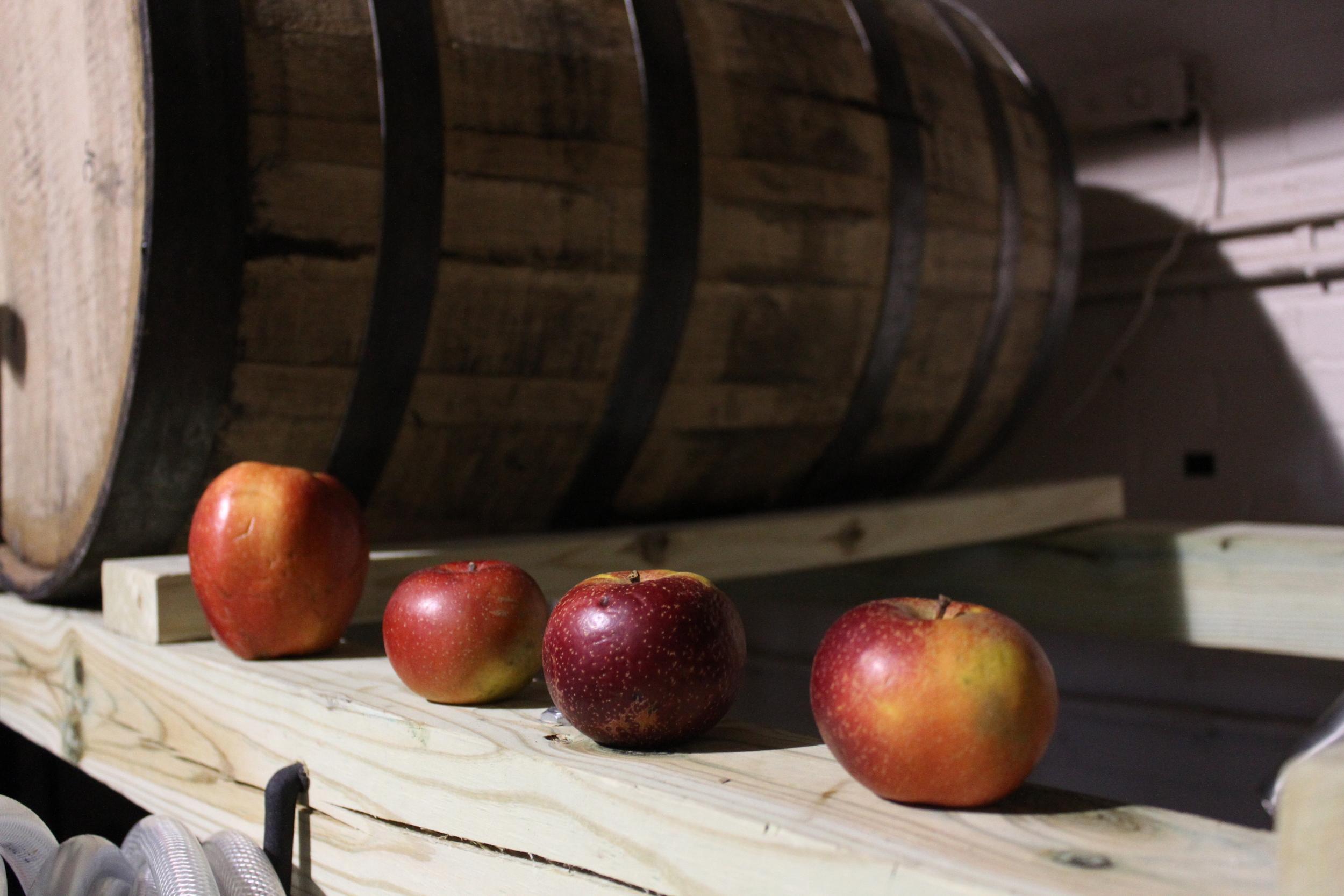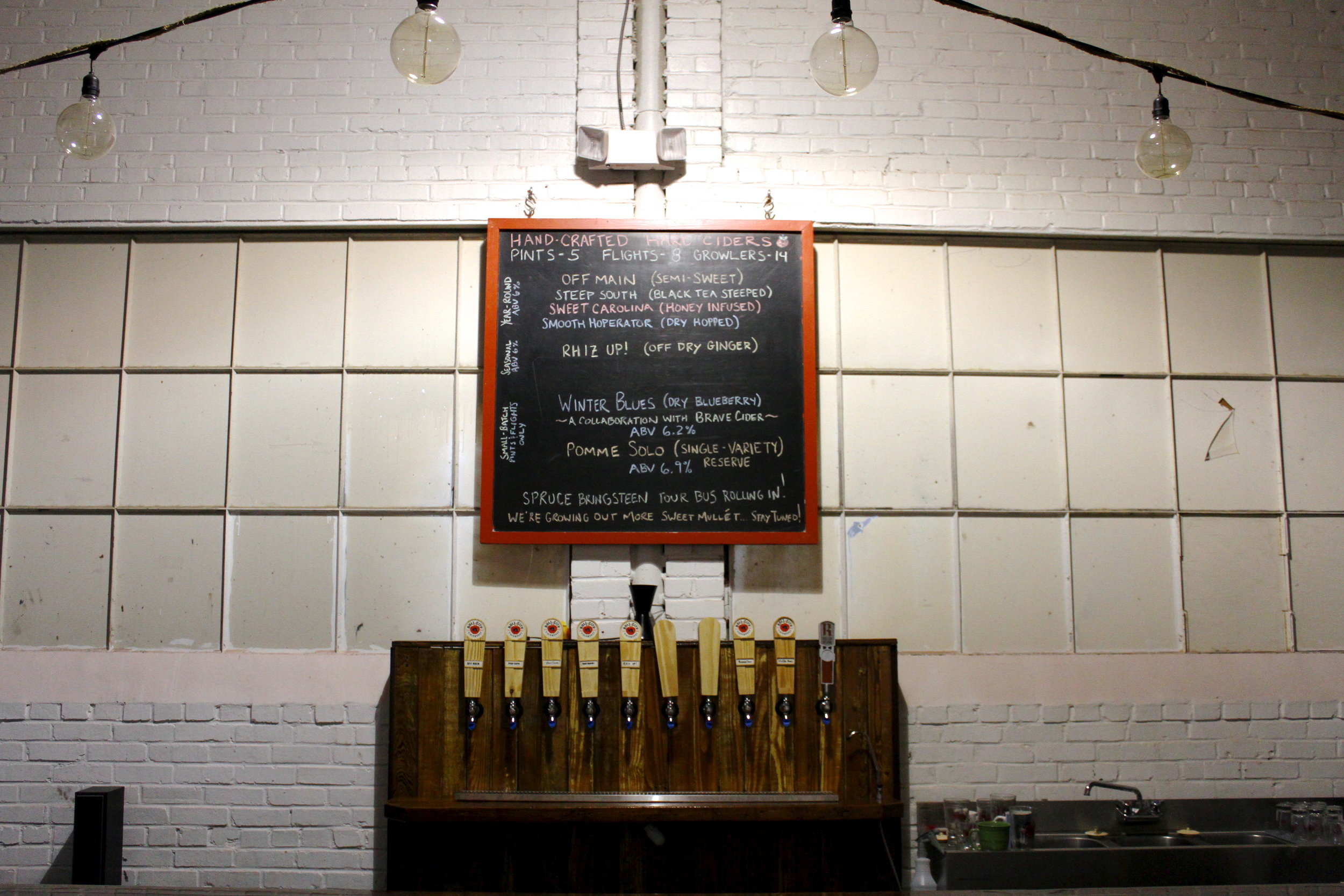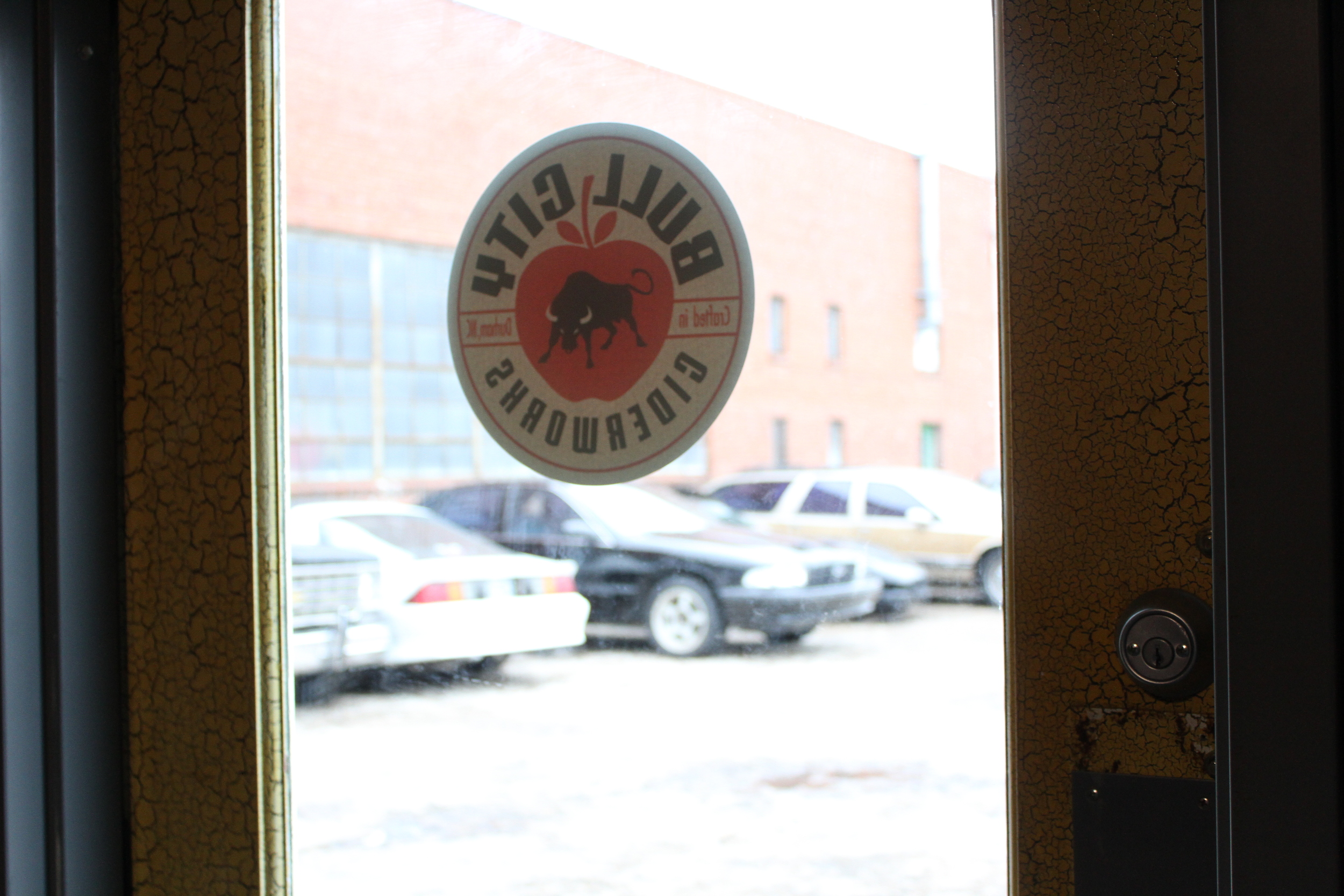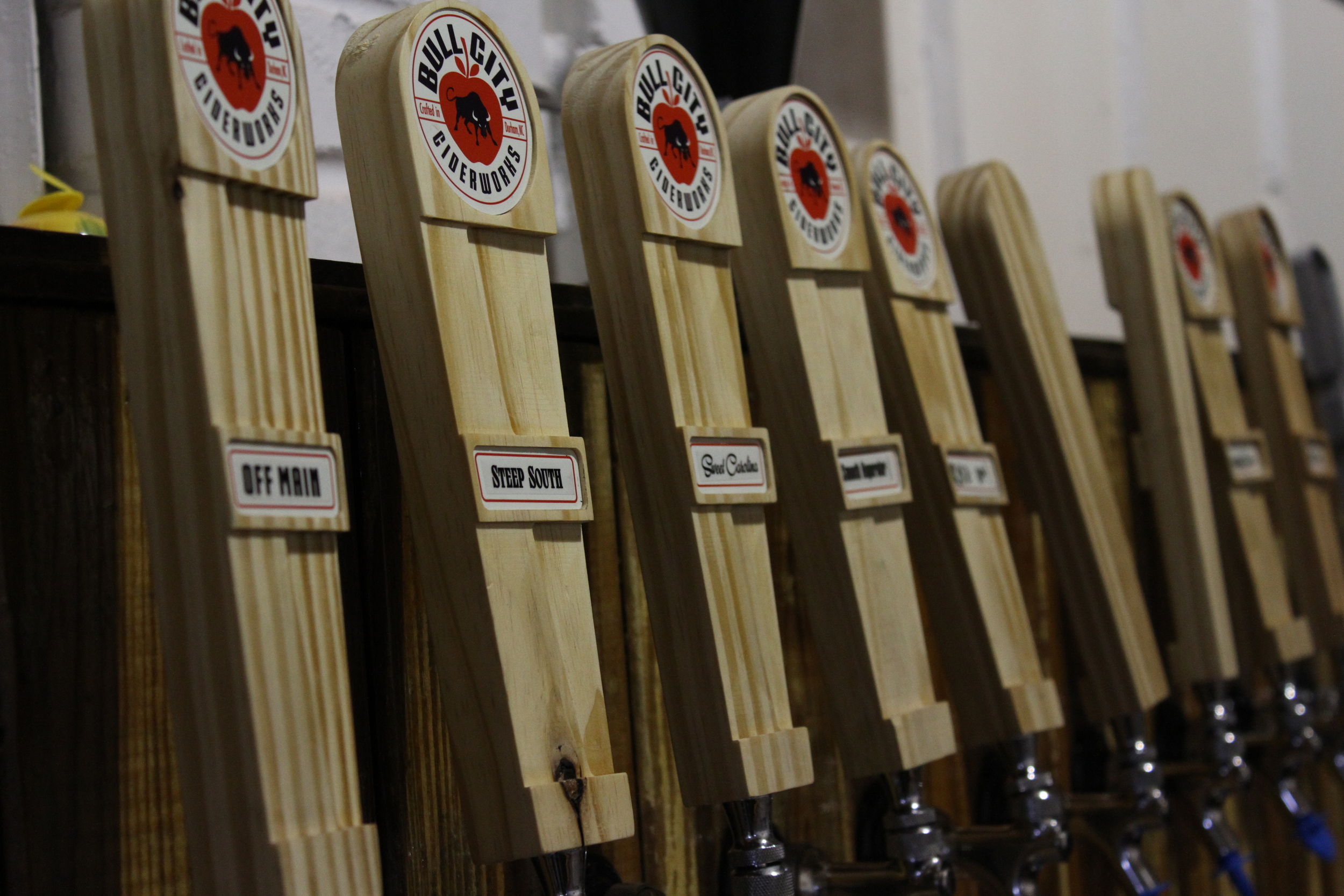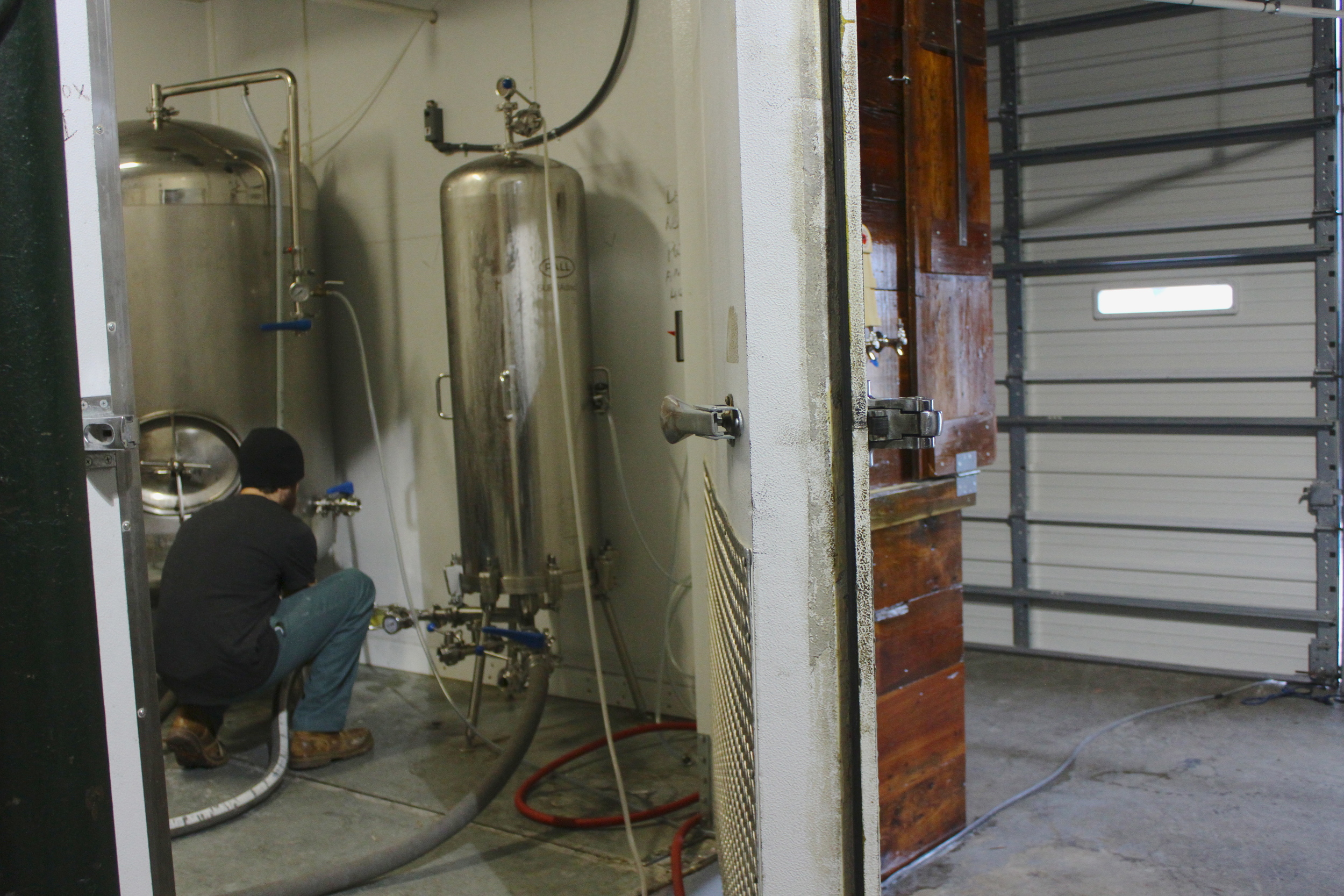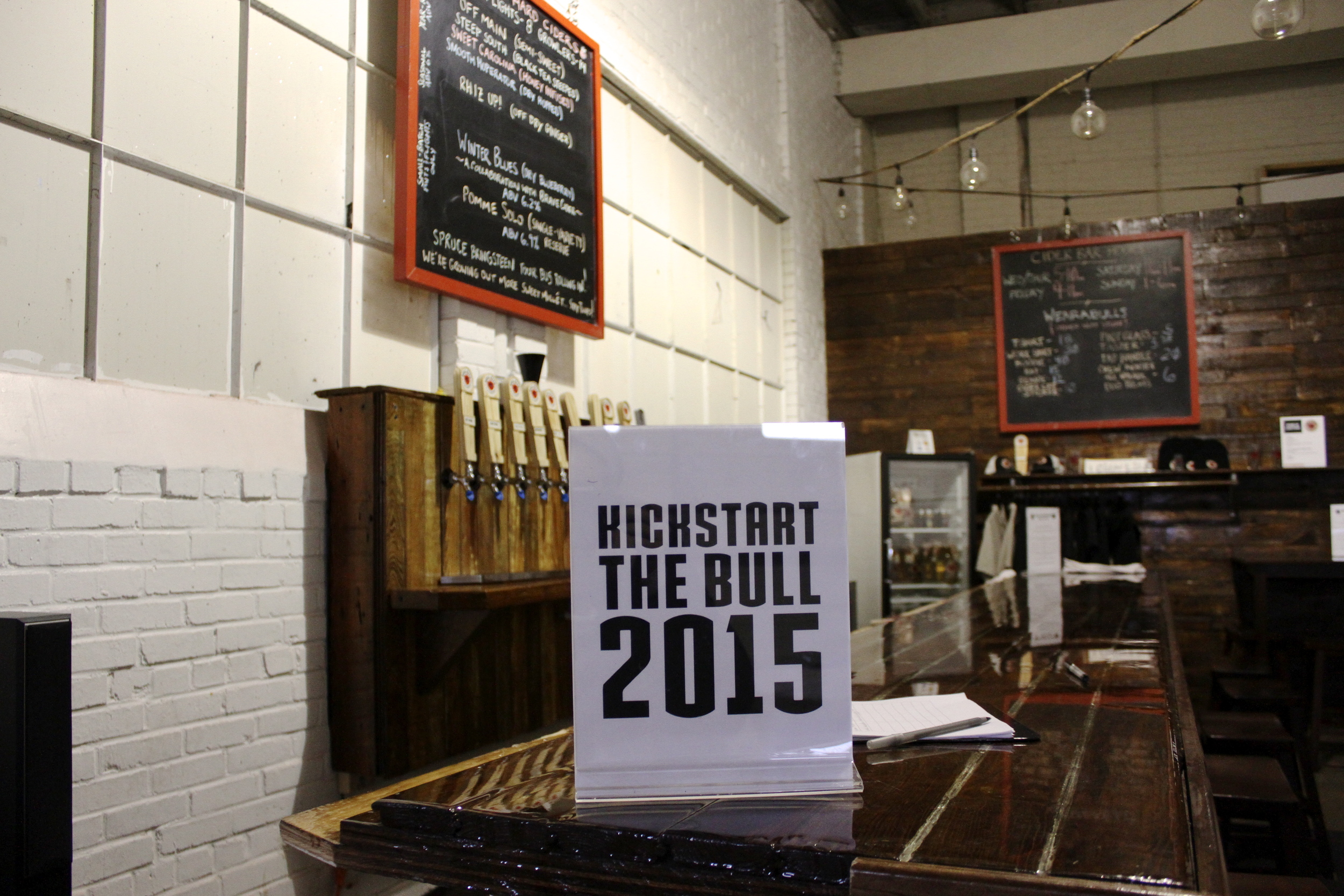Local Vendor Feature: Bull City Ciderworks
Ryan (second from left) and some of his cider-making team at Bull City
Harvard research scientist turned cider lord, Ryan Bogard, knows his way around a Fuji.
Ryan left the city behind about a year ago, opting for a more laid back lifestyle in his native North Carolina. The flavorful orchards he visited during his time in Boston inspired Ryan to bring the hard cider revolution down south with him. About a year ago, he joined up with friends and fellow Carolinians John Clowney, Ben Ingold and A.J. Nelson to form Bull City Ciderworks – everyone’s favorite industrial-garage-turned-local-cidery.
It was a trying start. As John, Ben and A.J. handled the back-end work, Ryan quickly realized the challenges he would face as the company’s resident brewer.
“My first batch of hard cider was awful. I had no clue how to even start. The first thing I did was boil some cider, put it in a container, add some yeast and let it cool,” he laughs. “I came back the next day and it was jam.”
Ryan and his team were also confronted with a tight budget and forced to assemble nearly everything in their East Durham space themselves. They managed to make it work. In the main room, handmade wood panel walls and a piano bar tap are dimly lit by repurposed track lights. Next door in the cider making workspace, plastic tanks stand in stark defiance to the more traditional, and expensive, stainless steel ones you’ll find in most cideries. Bull City’s modest 30-gallon tanks quickly grew into 250-gallon ones and today the team is running to keep up with an increased demand.
Most of the apples in their ever-growing batches come from Perry Lowe Orchards – a sixth generation family-owned farm in Moravian Falls, NC. The orchard front man, Ty Lowe, runs the operation the old fashioned way. He conducts business on a handshake and his word, rarely fertilizes or applies pesticides and shies away from selling to major chains. This more natural approach to farming translates to apples that are different than those that reside in the produce aisle.
“If you’ve noticed over the years, apples have gotten bigger on the shelves. They almost look like pumpkins now,” Ryan says. “But the problem is that when you fertilize an apple tree, it increases its water uptake and that water gets stored in the fruit. So if you have really big apples, the flavors are diluted and you’re basically just paying for water.”
Though the south isn’t traditionally associated with hard cider, Ryan thinks that the drink’s connection with the land makes it more appealing to locals.
“It’s building an industry in North Carolina that didn’t exist before. One thing that’s so unique about cider is that it directly impacts the farmers in the state,” he says.
Ryan’s background in microbiology helps him create innovative ciders from the small, flavorful Fuji and Golden Delicious strains he gets from Ty. He often engages in some friendly competition with Bull City’s five other cider makers by putting $100 on the line for whoever can think up the next funky flavor to add to their lineup. The cidery’s Sweet Carolina blend is sweetened with North Carolina honey, their Rhiz Up batch is infused with 30 pounds of ginger and Steep South is the only cider in the country to use sweet tea as a flavoring agent. But Bull City has taken their local, homegrown mentality to new extremes with their latest seasonal flavor, Spruce Bringsteen. Pine needles from Ryan’s last Christmas tree star in this oaky brew.
In its eight months of operation, Ciderworks has transformed into a community of its own; often serving as a gathering place for events and local vendors. Food trucks amass outside the garage doors, ready to feed tipsy customers and trade the staff some grub for a growler of cider.
The team hopes that this sense of neighborhood comradery will carry Ciderworks into its next phase in a new space. The cidery sits on the site of Durham’s soon-to-be police headquarters and is going to be emptied by December. They’ve organized a kickstart campaign to take some of the burden off their expensive move and with the support of 200 backers and counting, it’s safe to say that Durham has caught a case of cider fever.
Though unsure where the next six months will take them, the team continues to bask in the ride.
“At the end of the day, we do it because we love doing it,” Ryan says. “If you enjoy the people you work with and you enjoy the work you’re doing – it’s just priceless.”

